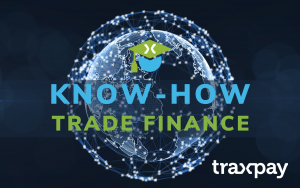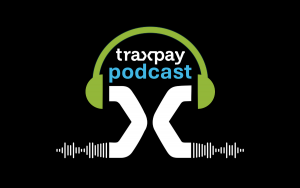In many ways, the relationship between buyers and suppliers is similar to personal friendships. There’s open communication, mutual respect, shared goals and a strong bond. But when buyers decide to extend payment terms, the relationship often becomes tense.
Suppliers may suddenly not be feeling quite so friendly. After all, they are being asked to give the same level of commitment to the business relationship, while waiting substantially longer for payment on those goods. At this moment, the “friendship” may not seem mutually beneficial.
Obviously, for most buyers, suppliers are the life-blood of their business. Without good supplier relationships, a company can’t execute on the goals of their business or meet the needs of their customers. Buyers require the goods and services of trusted suppliers in order to function on a daily basis. So, why risk the harmony of this relationship?
Simply put, that’s just the way of the world these days. Businesses of all shapes and sizes — and in every region of the globe — have embraced the notion of extending days payable outstanding (DPO). From a buyer’s perspective, it makes good business sense and supports working capital management optimization, which according to Strategic Treasury’s 2017 Analyst Report on supply chain finance technology solutions, should be a strategic goal. But it’s easy to see why suppliers might not feel so benevolent about helping to support the buyer’s liquidity strategy at their own expense — not to mention the challenges it creates for suppliers themselves who must somehow continue to finance their operations. The best of friendships generally feel like a two-way street where both sides achieve their goals.
Trade Finance: A Solution for Balancing the Needs of Both Sides of the Relationship
It’s true that buyers and suppliers do risk becoming nothing more than frenemies. However, a strategic trade finance program can be employed by buyers to deepen their relationship with suppliers, while making extended DPO far more palatable. The key is getting suppliers to embrace an offer that is mutually beneficial and not just favorable to the buyer alone.
In the past, supply chain finance programs were more of a take-it-or-leave-it proposition which essentially was one-sided. The good news is that today’s trade finance programs are truly a win-win for buyers and suppliers. By offering a variety of payment terms and payment delivery options, buyers can help their suppliers make their own cash flow more predictable while at the same time managing their own cash more effectively.
Banks Play a Vital Role in Building Strong Business Relationships
Banks have an important role to play in encouraging suppliers to participate in supply chain finance programs. Banks provide education, training and service support that are crucial in strengthening the bond between buyers and suppliers. In a manner of speaking, banks serve as a mutually respected friend, making sure there is harmony between all parties.
A well-conceived supply chain finance program will be attractive to the buyer because it allows them to increase DPO and achieve important working capital improvements, while at the same time deepening their relationship with suppliers. On the flip side, suppliers are able to take advantage of payment options that work for their business. With better payment terms, supplier can reap the rewards of improved and more predictable cash flow that is so vital to their business operations.
Banks Can Expand The Reach of Their Offerings
In the past, banks have confined their supply chain finance programs to investment grade buyers. But this focus overlooks a vast swath of smaller businesses that could really benefit from these types of programs. According to an article in The Economist, unmet demand for supply chain finance is enormous. Naveed Sultan, head of Citigroup’s trade-finance and treasury divisions, says that supply chain finance is the fastest growing area of his business. And it means banks could be missing out on real growth opportunities.
This is where FinTechs can make all the difference. New offerings from companies like Traxpay are allowing banks to reach buyers and suppliers that were previously not on their radar. Instead of being sworn enemies, banks can partner with FinTechs to offer access to vital reverse factoring solutions. Mutually beneficial business opportunities can bring competitors together for the betterment of both businesses.
In such a relationship between bank and FinTech, banks leverage their existing technology, but rely on the FinTech to enhance current capabilities. Banks continue to handle the promotion of the supply chain finance option to suppliers and enroll them, thereby protecting their relationship with the buyers and suppliers.
For banks and buyers alike, the chance to better support suppliers and open up new business opportunities is hard to ignore. Supply chain finance offers an important means for creating an even stronger friendship between buyers and suppliers.
BY JOCHEN SIEGERT
Jochen Siegert is Traxpay’s Chief Operating Officer. He is an internationally recognized FinTech and digitalization influencer with extensive experience in product development and strategic leadership for global financial services organizations.
BY ALAN KOENIGSBERG
Alan Koenigsberg is Chief Revenue Officer and a strategic advisor to Traxpay. He is a payments expert and served as a banking and payments executive at global financial institutions for more than 25 years.



